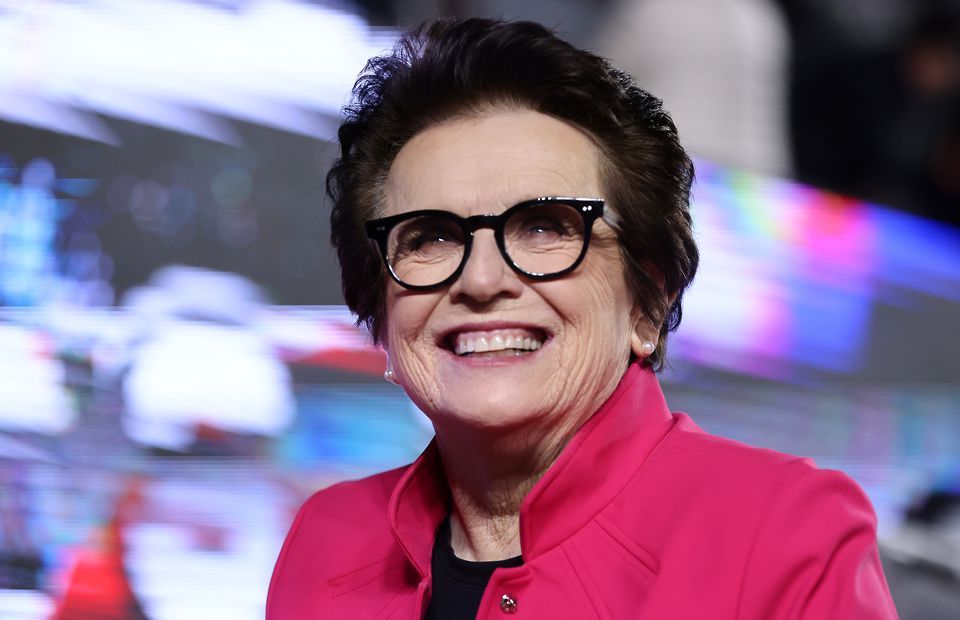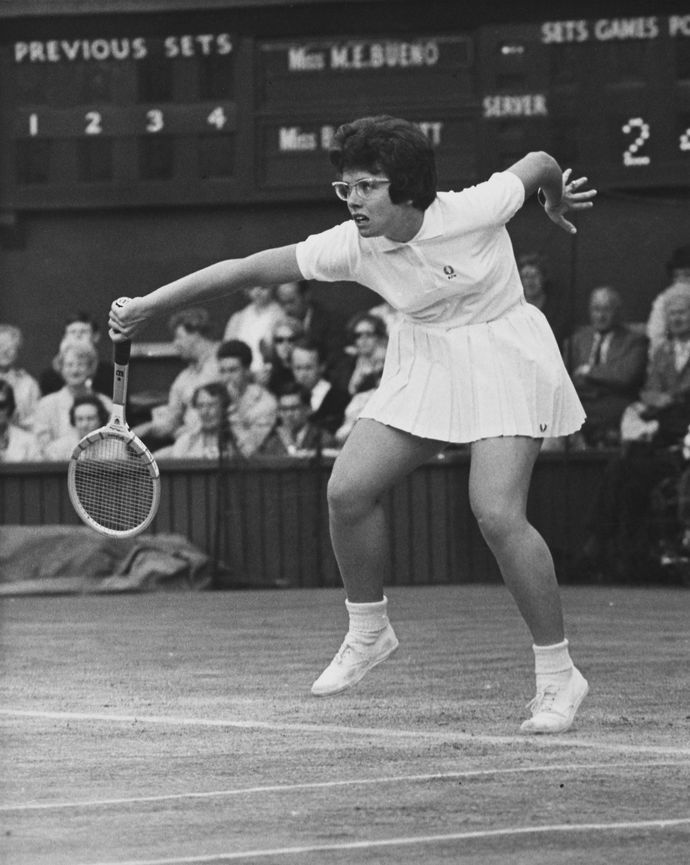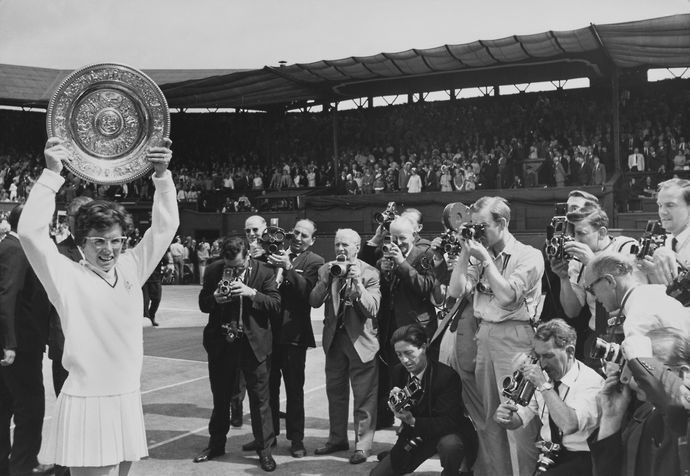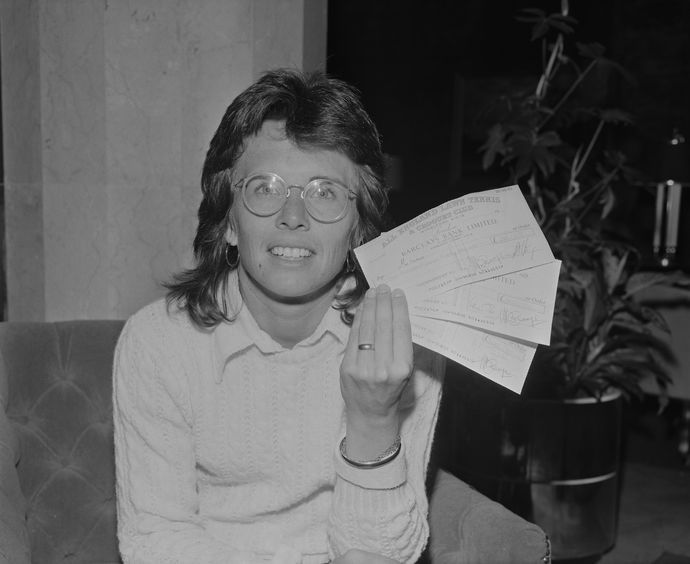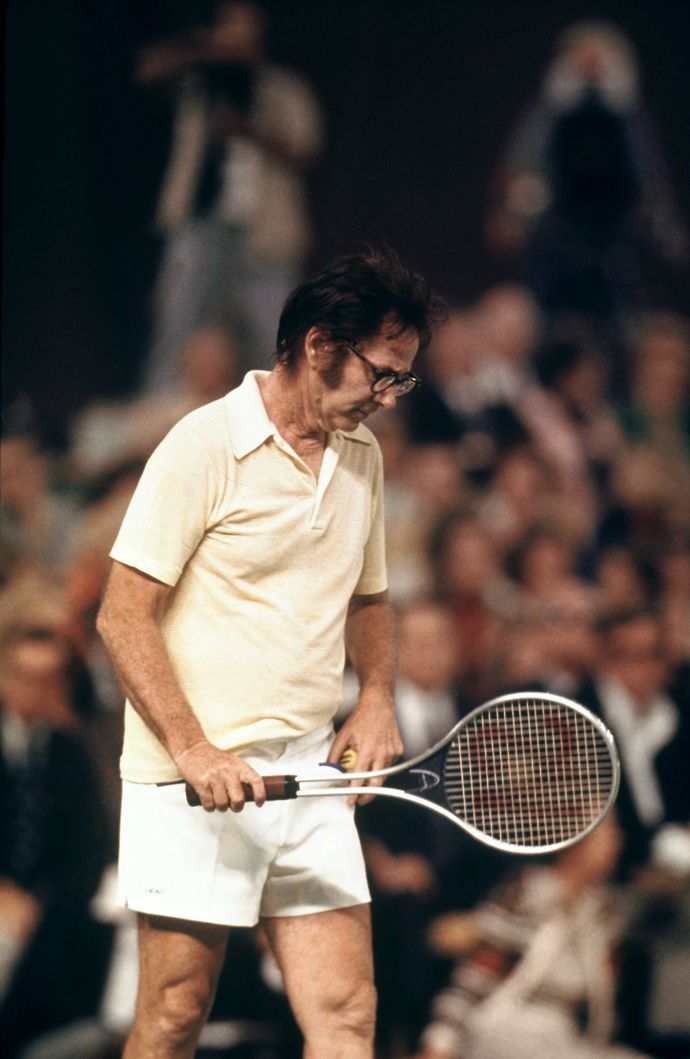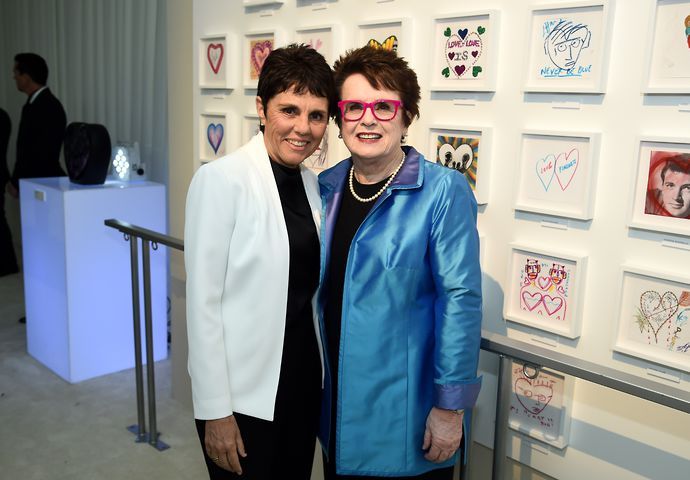Serena Williams. Martina Navratilova. Maria Sharapova. The greatest female tennis players in history all come from different backgrounds, and have enjoyed varied careers. But they all have at least one thing in common.
Their success on the court is the product of hard work, determination and raw talent, but they have also benefited from the tenacity of American tennis legend, Billie Jean King.
King, who turns 78 today, is not only one of the best tennis players to grace the court, but has long been a pioneer for equality and social justice.
To mark her birthday, GiveMeSport Women celebrates her career in full.
King’s early life
King was born in 1943 in Long Beach, California. Both her parents were athletic – her mother was a good swimmer, while her father played basketball and baseball. King’s younger brother, Randy Moffitt, went on to become an MLB pitcher.
Until she was 11, King played baseball and softball. She then switched to tennis after her parents told her to find a more "ladylike" sport, making use of the free lessons on the Long Beach public courts.
In 1958, King made a name for herself after winning the South California Championship for her age category. The following year, she started to receive coaching from Alice Marble, a former player who won five Grand Slam titles.
During this time, King attended Long Beach Polytechnic High School. She graduated in 1961, the same year she and Karen Hantze Susman made headlines by becoming the youngest pair to win the women’s doubles title at Wimbledon.
King attended Los Angeles State College from 1961 to 1964, meeting her future husband Larry King in a library in 1963, but she left to focus on tennis before she managed to graduate.
Formation of the WTA
King won her first Grand Slam title in 1966, triumphing in the singles competition at Wimbledon. She went on to win five more times at the All England Lawn Tennis Club.
During a highly successful career, King also earned four US Open titles, and was victorious at the Australian Open and French Open in 1968 and 1972 respectively.
In 1970, King was one of nine players who broke away to compete in the Virginia Slims Tour, a women’s tournament sponsored by cigarette manufacturer Philip Morris.
Known as the "Original 9", the players were incensed by the pay disparity between male and female stars.
"The women were being squeezed financially because we had no control in a male-dominated sport," King and Cynthia Starr wrote in their 1988 book, "We Have Come a Long Way."
"Men owned, ran and promoted the tournaments, and because many of them were former players themselves, their sympathies lay with the male players, who argued vociferously that most of the money should be theirs."
The Tour was a success, and in 1971, King became the first female athlete to earn more than $100,000 (£74,600) in prize money in a single year. But she yearned for more than just individual gain – King wanted all female tennis players to be paid equally.
As a result, King spearheaded the creation of the Women’s Tennis Association in 1973. The American was selected as the organisation’s first President, and the Virginia Slims Tour became the WTA Tour.
Now, the WTA has more than 2,500 players from nearly 100 countries competing for $146 million (£109 million) in prize money.
Battle of the Sexes
King advanced her cause by defeating Bobby Riggs in the Battle of the Sexes exhibition match.
Riggs won Wimbledon in 1939 and was considered one of the world’s best male players in the 1940s. By 1973, the 55-year-old American had embarked on a career of playing in promotional challenge matches.
He was highly condescending towards women’s tennis, claiming it was so inferior that he was able to beat the most talented female players at the time.
Riggs was spurred on after challenging and defeating multi-time Grand Slam winner Margaret Court 6–2, 6–1. Having previously rejected challenges from Riggs, King was prompted to accept a request to play a $100,000 winner-takes-all match.
The pair met at the Houston Astrodome in Texas in September 1973. Around 30,500 spectators were in attendance, with 90 million viewers tuning in from around the world.
King triumphed 6-4, 6-3, 6-3, giving women’s tennis a platform like never before.
"I thought it would set us back 50 years if I didn't win that match," she said in 1973. "It would ruin the women's tour and affect all women's self-esteem.
"To beat a 55-year-old guy was no thrill for me. The thrill was exposing a lot of new people to tennis."
LGBTQ+ pioneer
King is now known as an LGBTQ+ activist, but that was not always the case. She married Larry King in 1965, crediting her husband with introducing her to feminism and helping her promote women’s tennis.
In 1968, however, King realised she was attracted to women, and began an intimate relationship with her secretary, Marilyn Barnett, in 1971.
She was forced to publicly acknowledge her sexuality in 1981, after Barnett sued her for palimony. The lawsuit caused King to lose an estimated $2 million (£1.5 million) in endorsements, and she had to use her winnings to pay for legal fees.
She stayed married to Larry King until 1987, when the couple parted ways after King fell in love with her doubles partner Ilana Kloss.
Although King has described her outing as "horrible", she has now become an advocate for LGBTQ+ people around the world, working with the Elton John AIDS Foundation and setting up her own inclusivity project, the Billie Jean King Leadership Initiative.
As former US President Barack Obama said when awarding King with the Medal of Freedom in 2009, the tennis player is a legend for "all the off-the-court stuff".
"What she did to broaden the reach of the game, to change how women athletes and women everywhere view themselves, and to give everyone, regardless of gender or sexual orientation – including my two daughters – a chance to compete both on the court and in life."




















